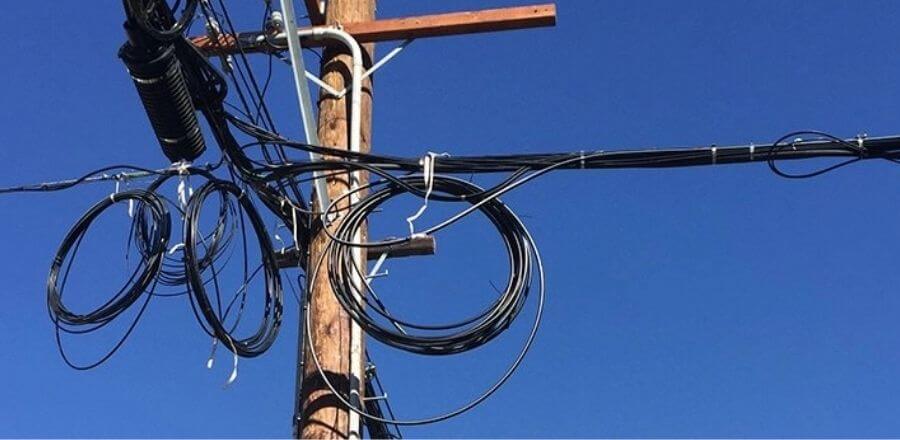Coutact Us
Whatsapp:+8618075108880
Email:info@ec-fibercable.com
Time:2023-02-23 10:58:02
ADSS optical cable characteristics,All-Dielectric Self-Supporting (ADSS) optical cables are a popular choice for overhead fiber optic installations. These cables offer several advantages over traditional aerial cables, including ease of installation, high tensile strength, and low maintenance requirements. In this article, we will discuss the characteristics of ADSS optical cables in detail.
All-Dielectric Construction
One of the primary characteristics of ADSS optical cables is their all-dielectric construction. Unlike traditional aerial cables, which use a steel or aluminum messenger wire for support, ADSS cables are made entirely of dielectric materials. This means that they do not conduct electricity and are not affected by electromagnetic interference (EMI).
High Tensile Strength
ADSS cables have a high tensile strength, which allows them to span long distances without the need for intermediate support structures. This makes them ideal for use in areas where it is difficult or impractical to install overhead support structures, such as in remote or rugged terrain.
Easy Installation
Another advantage of ADSS cables is their ease of installation. Because they do not require a separate messenger wire for support, they can be installed quickly and easily using standard installation techniques. This can save time and money compared to traditional aerial cables, which require more complex installation procedures.
Low Maintenance
ADSS cables require minimal maintenance over their lifetime. Because they are made of dielectric materials, they do not corrode or degrade over time like traditional aerial cables. This means that they can be installed in areas where maintenance is difficult or expensive, such as in remote or hard-to-reach locations.
High Bandwidth Capacity
ADSS cables are designed to support high bandwidth applications, such as data transmission and video streaming. They are capable of transmitting data over long distances without degradation, making them ideal for use in high-speed networks.
Temperature and Weather Resistant
ADSS cables are designed to withstand a wide range of temperature and weather conditions. They can be used in extreme temperatures, from -40°C to +70°C, and are resistant to UV radiation, moisture, and wind.

Multiple Fiber Counts
ADSS cables are available in multiple fiber counts, ranging from a few fibers to several hundred fibers. This allows them to be customized for specific applications, and makes them suitable for use in both small and large-scale projects.
Lightweight
ADSS cables are lightweight and compact, which makes them easy to transport and install. This is especially important in areas where access is limited, such as mountainous terrain or densely populated urban areas.
High Fiber Density
ADSS cables have a high fiber density, which means that they can carry more data over a smaller area than traditional aerial cables. This makes them ideal for use in areas where space is limited, such as in urban environments or on crowded utility poles.
High Security
ADSS cables are highly secure, as they do not contain any metal components that can be easily tapped or intercepted. This makes them ideal for use in applications where security is a concern, such as in military or government networks.
In conclusion, ADSS optical cables offer several advantages over traditional aerial cables, including ease of installation, high tensile strength, and low maintenance requirements. They are designed to support high bandwidth applications, withstand a wide range of temperature and weather conditions, and can be customized for specific applications. With their all-dielectric construction and high security, ADSS cables are an excellent choice for overhead fiber optic installations.